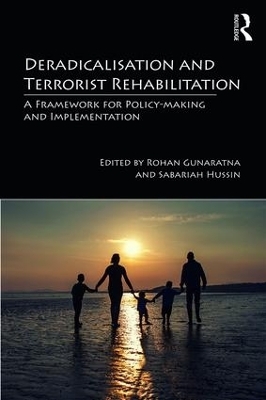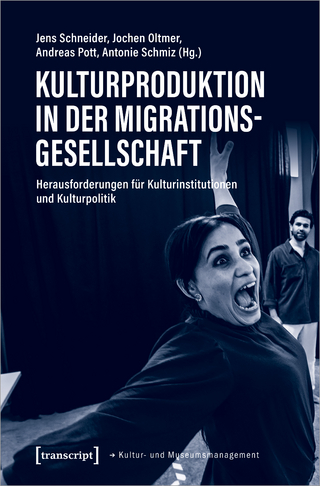
Deradicalisation and Terrorist Rehabilitation
Routledge (Verlag)
978-1-138-60252-6 (ISBN)
The threat of terrorism, if not adequately managed, is likely to increase exponentially. As terrorist groups’ influence and networks spread globally, a concerted effort in counterterrorism strategy is critical to mitigating the threat they present. Governments facing the threat of terrorism are typically strengthening their law enforcement, military and intelligence capabilities, but more complex initiatives such as deradicalisation and terrorist rehabilitation are more time-consuming and less attention-grabbing and so tend to be neglected. It is all too easy to 'do' rehabilitation ineffectively or to simply ignore it altogether. This is unfortunate, as an effective rehabilitation strategy can yield dividends over the longer term. Every committed terrorist is a potential recruiter, whether in prison or at liberty, for more terrorists. Even in death, they can potentially be presented as martyrs. Conversely, successfully rehabilitated terrorists can be valuable assets in the public relations theatre of battle.
There is no single, simple solution to the challenges of deradicalisation and rehabilitation, but this book places examples of best practice within a robust, but flexible, conceptual framework. It gives guidelines for establishing and implementing a successful deradicalisation or rehabilitation programme, derived from a series of empirical case studies of successful projects around the world. It sets out both the necessary and desirable facets of such a programme, identifying which areas to prioritise and where budgets can be best spent if resources are tight. The authors provide detailed case studies of each step to illustrate an approach that has worked and how best to replicate this success.
Rohan Gunaratna is Professor of Security Studies and Head of the International Centre for Political Violence and Terrorism Research, S. Rajaratnam School of International Studies, Nanyang Technological University, Singapore. Sabariah Hussin is a Research Analyst at the International Centre for Political Violence and Terrorism Research, S. Rajaratnam School of International Studies, Nanyang Technological University, Singapore.
Acknowledgement
Foreword by Brian Michael Jenkins
Contributors Bio
1. Introduction (Rohan Gunaratna and Sabariah Hussin)
2. Behind Bars: Do Prison Settings Hold the Key to Successful Custodial Rehabilitation programmes? (Jolene Jerard)
3. Countering Radical ideology: Case Studies of Religious Rehabilitation Programmes (Ahmad Saiful Rijal bin Hassan)
4. Economic Rehabilitation of Terrorists: What can be learned from Disarmament, Demobilisation and Reintegration programmes? (D.B. Subedi)
5. Entrepreneurial rehabilitation: The promise of social entrepreneurship in disengaging religious terrorists. (Yanto Chandra)
6. Family and Social Rehabilitation as a mode of Holistic Rehabilitation Programme (Muhammad Saiful Alam Shah Sudiman and Nur Irfani Saripi)
7. Psychological Rehabilitation for Ideology-based terrorism offenders (Zora A.Sukabdi)
8. Assessment and Evaluation of Terrorist Rehabilitation Programmes (Malkanthi Hettiarachchi)
Index
| Erscheinungsdatum | 21.09.2018 |
|---|---|
| Reihe/Serie | Routledge Studies in the Politics of Disorder and Instability |
| Zusatzinfo | 5 Tables, black and white; 11 Line drawings, black and white; 11 Illustrations, black and white |
| Verlagsort | London |
| Sprache | englisch |
| Maße | 156 x 234 mm |
| Gewicht | 235 g |
| Themenwelt | Sozialwissenschaften ► Politik / Verwaltung ► Allgemeines / Lexika |
| Sozialwissenschaften ► Soziologie ► Spezielle Soziologien | |
| ISBN-10 | 1-138-60252-3 / 1138602523 |
| ISBN-13 | 978-1-138-60252-6 / 9781138602526 |
| Zustand | Neuware |
| Informationen gemäß Produktsicherheitsverordnung (GPSR) | |
| Haben Sie eine Frage zum Produkt? |
aus dem Bereich


